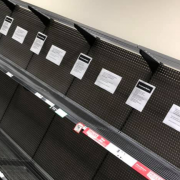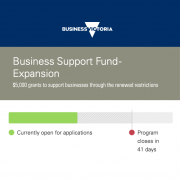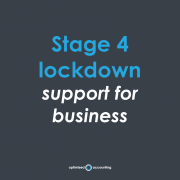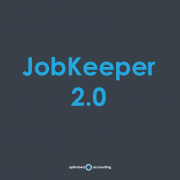
The impact of COVID-19 has been felt very differently from region to region. Fortunes vary wildly between business operators subject to ongoing lockdowns and trading impediments to those benefiting from the “new normal”.
For those severely impacted by COVID-19, JobKeeper might be available. The third and final phase of JobKeeper started on 4 January and runs through until 28 March 2021. To receive JobKeeper, employers need to have experienced a sufficient downturn (a 30% threshold applies to most entities) in their actual GST turnover in the December 2020 quarter compared to the same period in 2019 – although alternative tests exist.
The payment rate for employers is $1,000 per fortnight per employee or business participant who worked 80 hours or more over a specific 28 day period, or $650 per fortnight per employee or business participant for those who worked less than 80 hours in the relevant period – a reduction from previous JobKeeper payment periods.
Assessing eligibility, managing the decline in turnover test, calculating GST turnover for the decline in turnover test, and managing the 80 working hours requirement for the differential payment rates can all be complex. We’ve outlined a few of the key issues for employers in need of relief:
My business did not previously qualify for JobKeeper. Can I access it now?
Your business can potentially access JobKeeper for the period between 4 January 2021 and 28 March 2021 even if it didn’t qualify for JobKeeper for the period between 28 September 2020 and 3 January 2021 or for the original JobKeeper scheme period that ended on 27 September 2020.
The fact that you have not previously enrolled in JobKeeper or met the eligibility conditions prior to the start of the latest phase of the JobKeeper scheme should not prevent you from accessing JobKeeper from 4 January 2021. For example, if you could not pass the decline in turnover test for the September 2020 quarter this does not automatically prevent you from being able to access JobKeeper for the period between 4 January 2021 and 28 March 2021 as long as your business can pass the decline in turnover test for the December 2020 quarter.
We have been in JobKeeper previously. Do my employees need to complete a new nomination form for JobKeeper from 4 January 2021?
Employees should not need to provide you with a new enrolment form if they have previously provided a valid nomination to you. You should ensure that you have a copy of the original form on file and a copy of the notification that you sent to the employee confirming that their details were provided to the ATO and advising them of the payment rate that applies to them.
What’s included in GST Turnover for the decline in turnover test?
To access JobKeeper, employers need to satisfy a decline in turnover test. The decline in turnover test for JobKeeper from 4 January 2021 compares actual GST turnover in the December 2020 quarter (October 2020, November 2020 and December 2020) to the same period in 2019 (alternative tests are available in some instances where this comparison is not appropriate).
Understandably, we’re receiving lots of questions about what is included in GST turnover and how it is calculated.
In general, if your business is registered for GST you must use the same method that is used for GST reporting purposes. For example, if your business is registered for GST on a cash basis then a cash basis needs to be used to calculate current GST turnover for the purpose of the JobKeeper decline in turnover test for the December 2020 quarter.
Your GST turnover includes proceeds from the sale of capital assets, such as property, equipment or licenses, unless the sale is input taxed. Current GST turnover includes taxable and GST-free supplies, but should exclude input taxed supplies such as residential rental income and financial supplies like dividends, interest etc. JobKeeper and ATO cash flow boost payments should be excluded from the calculation along with other payments that don’t represent consideration for a supply made by the business such as certain State based grants.
If your business has received payments in advance, then you will normally need to recognise these payments as part of the GST turnover calculation, even if the goods or services have not been provided to the customer yet. For example, if your business accounts for GST on a cash basis then you need to recognise the payment for GST purposes as it is received and include it in your GST turnover calculation, even if the services haven’t been provided. There are some special rules where security deposits apply to defer the GST liability but these rules are reasonably limited in their application.
And, if your business is part of a GST group, each entity needs to calculate its GST turnover as if it were not part of the group. That is, supplies made by another group member should not be included in GST turnover for the purposes of the decline in turnover test.
When I stood down my employees, they started working for someone else to get by. Can they still receive JobKeeper?
To access JobKeeper, employees need to have been either full-time, part-time or long terms casuals of your business on either 1 March 2020 or 1 July 2020. If the employment relationship remains intact (their employment has not been terminated and they haven’t accessed JobKeeper from another business), then the fact that the employee is performing some work for another entity doesn’t necessarily prevent ongoing access to JobKeeper with you, their original employer.
Of course, the employee can only receive JobKeeper from one employer and there are a number of eligibility conditions that need to be satisfied.
Sole Trader Granted Access JobKeeper with Backdated ABN
A sole trader who was able to backdate his ABN has won access to JobKeeper payments in a recent case before the Administrative Appeals Tribunal (AAT).
To be eligible to access JobKeeper as a business participant (for example, as a sole trader), the rules require a business to have an active ABN on 12 March 2020. The rules also provide the Tax Commissioner with the discretion to allow further time for an entity to register for an ABN.
In this case, a sole trader, Mr Apted was an expert property valuer who had been in business for himself in various structures since 2012. In 2014, he set up as a sole trader and registered for an ABN and GST. In 2018, he decided to retire, cancelling his GST registration and later relinquishing his ABN with effect from 4 June 2018 – although he was aware that he had the flexibility to start up again if the need arose or his expertise was required.
In June 2019, former colleagues encouraged him to accept new work and he was contacted soon after by a potential client who engaged him to provide his valuation services in September 2019. Mr Apted made it known that he was available for referral work.
Mr Apted stated that he was unaware that he needed to reactivate his ABN as he believed that an ABN was only required if he intended to register for GST. Given he did not expect to earn over the GST threshold of $75,000, he did not see this as necessary. His clients also did not withhold tax from payments to him as required when payments are made to a supplier without a valid ABN.
On 31 March 2020, Mr Apted applied and had his ABN reinstated. Then on 20 April 2020, he applied for JobKeeper but this was denied as he did not have a valid ABN on 12 March 2020. In June, Mr Apted phoned the Registrar of the Australian Business Register seeking to have the date of effect of his ABN corrected to align with his resumption of trade. The Registrar subsequently adjusted the date of effect of the ABN to 1 July 2019. With this adjustment, Mr Apted believed he had an active ABN at 12 March 2020 required by the JobKeeper integrity rules.
The Tax Commissioner however did not accept the backdated ABN as an “active” ABN and declined to use his discretion to allow Mr Apted access to JobKeeper. However, The Administrative Appeals Tribunal (AAT) found:
“We are satisfied the applicant is the kind of person who was intended to benefit from the Jobkeeper scheme. While his business was small and his income irregular, he still satisfies all of the eligibility criteria … There is nothing to be achieved by denying him access to the payments in order to make a point about the desirability of obtaining an ABN.”
The AAT set aside the Commissioner’s decision in favour of Mr Apted directing the ATO to enrol Mr Apted in JobKeeper for the relevant period.
A statement from Holding Redlich, the legal firm representing Mr Apted says, “Small businesses that have been refused JobKeeper might now qualify for JobKeeper – and be entitled to make claims back until the beginning of the scheme in April 2020.”
The ATO has lodged an appeal with the Federal Court of Australia in the Apted case and has stated that it will not pre-emptively review decisions of eligibility until the outcome of the appeal has been handed down.
Giving further hope to those who had previously been denied access to JobKeeper under a strict interpretation of the rules is the recent report from the Inspector General of Taxation (IGT). JobKeeper and the Cashflow boost require that the business had some business income in the 2018-19 income year and notified the ATO of this by 12 March 2020 or made some supplies connected with Australia in a tax period that started on or after 1 July 2018 and ended before 12 March 2020 and notified the ATO of the supplies (e.g., on an activity statement) by 12 March 2020.
In her report, the IGT has made it clear that, “…for the purposes of the [JobKeeper] and [Boosting Cash Flow] support measures, a taxable supply can be made where an entity makes or acquires a financial interest, for example, by opening a bank account, as this constitutes the making of a financial supply. Such a supply might have been made during the commencement of the business, well before the business had made its first sale.”
For any business seeking redress on a JobKeeper or Cashflow boost eligibility decision, strict timeframes apply. Despite the ATO’s reticence to engage on these issues until the outcome of the Federal Court is known, it is important to lodge the necessary applications or objections to ensure the window of opportunity is not missed.
Take-outs
- An ABN backdated by the Business Registrar may meet the JobKeeper eligibility criteria
- Simply opening a bank account and advising the ATO of the account (for example when registering for GST) in the relevant time period (by 31 December 2019 for quarterly or 29 February 2020 for monthly taxpayers) might meet the eligibility test to make a supply in Australia – even if the business had not made any sales.
What if Optimised Accounting already handles my JobKeeper?
If we already handle your JobKeeper for you, you should have already heard from us about your eligibility. If your business is entitled to this, we want to make sure you receive it.
If you are unsure or would like us to check your eligibility please reach out to us by calling (03) 8609 9226.
If you’re keen to see how we work with businesses to support them with JobKeeper, our fee details and how to engage us with JobKeeper can be found here.
Get more updates like this in your inbox
Sign up to our monthly newsletter to receive due dates, news, tax tips and other important things that we think are useful and interesting throughout the year.
This article was written by a third party.
